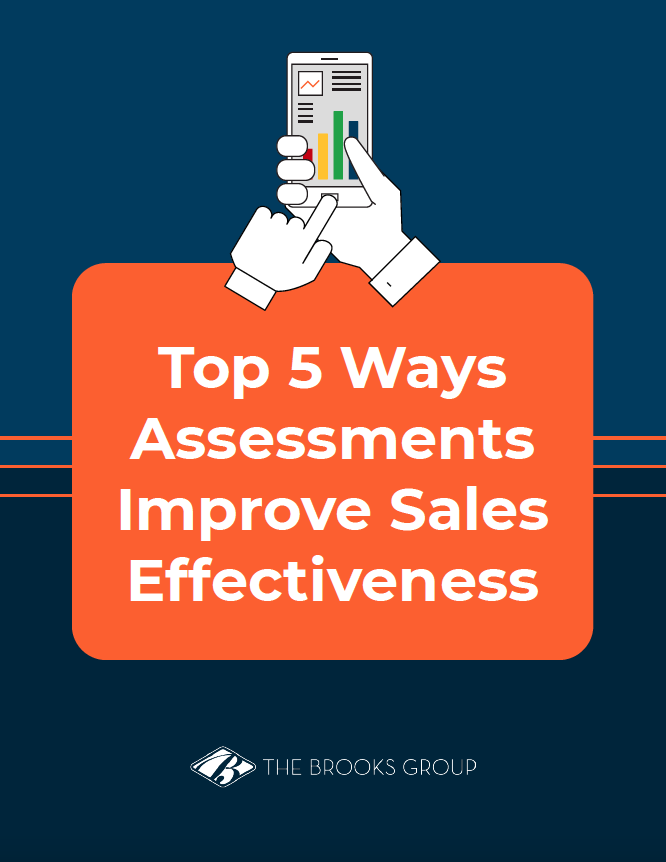Sales hiring assessments are now an essential element of a B2B sales leader’s expertise. Hiring the wrong person for a sales role, whether due to a lack of necessary skills or a poor cultural fit, can have serious negative consequences for an organization.
Not only are there significant financial costs, but a bad hire can also negatively impact team morale, customer relationships, and the organization’s reputation. Taking the time to thoroughly evaluate cultural and skills fit upfront can avoid these problems.
Costs of Hiring the Wrong Candidate
There are significant costs associated with every new sales hire, and those costs are wasted when a candidate doesn’t work out. In addition to internal time and resources, other investments that can’t be recouped are lost productivity during the hiring/ramp-up period, the time and expense of training that fails to remedy skills gaps, potential revenue losses from missed sales opportunities, and turnover costs of backfilling the role.
A candidate who lacks essential selling skills won’t be able to effectively execute core sales functions such as prospecting, presenting, or closing, or to contribute to revenue growth—at least at first. They’ll take longer to ramp up and they’ll need more sales training.
Their skills deficit may lead to lost sales opportunities as well as missed quotas and sales targets. Prospects and customers could have a poor experience with an unskilled sales professional. And, if they don’t acquire the necessary skills, you may need to replace the underperforming hire, restarting the hiring cycle.
Poor cultural fit, on the other hand, can lead to lower engagement and motivation as well as overall underperformance. Misaligned values or work styles can cause conflicts with teammates.
This may disrupt team morale and dynamics and potentially may have a negative impact on customer relationships. Lastly, hiring a poor cultural fit may lead to higher turnover if the employee becomes dissatisfied and leaves.
Gain insight into predictors of sales success with the Brooks Talent Index™.
Benefits of Sales Skills Evaluations When Evaluating Potential Sales Hires
There are several important benefits of evaluating the sales skills of sales candidates before hiring as well as current team members.
1. Better Hiring Decisions
Assessing sales skills and attributes prior to hiring allows you to objectively evaluate a candidate’s strengths, weaknesses, motivators, and behavioral style for superior sales role fit. This can reduce costly mis-hires.
2. More Effective Training and Coaching
Identifying gaps in sales competencies, thinking abilities, and motivators highlights the specific areas in which each sales professional needs development. This allows for personalized coaching plans focused on meaningful skill-building.
3. Better Role Fit
Understanding each sales professional’s behavior style, motivators, and cognitive capabilities helps determine the types of roles, territories, products, and accounts they may be best suited for based on their strengths.
4. Improved Performance Management
Assessments provide objective data on the skills and competencies of your sales team. This factual insight enables better recognition, coaching, promotion, and compensation decisions.
5. Increased Productivity and Results
By having the right people in the right roles, with targeted sales coaching on their developmental needs, you can maximize the productivity and revenue generation of your sales organization.
6. Data-Driven Talent Development
Assessments help identify high-potential sales professionals to groom for leadership roles based on such things as their motivation fit, competencies, and selling skills.
Overall, evaluating sales talent using hiring assessments provides an objective, data-driven approach to hiring, coaching, and developing top-performing salespeople. This can translate to better customer experiences, higher revenue attainment, and improved talent retention.
How to Evaluate Sales Skills
There are a number of validated sales skills assessments that help sales leaders understand a sales professional’s behaviors, motivators, and competencies.
DISC Personality Assessment
The DISC assessment analyzes how different behavior styles (D=Dominance, I=Influence, S=Steadiness, C=Compliance) can impact selling approaches. Sales professionals gain an understanding of their own preferences and how to adapt their communication style to match customer preferences.
Sales leaders can use these insights to guide coaching, fine-tune communication, and deliver feedback for greatest improvement.
Hiring Tip: Look for a blend of styles. Top performers often have high I and D traits to build rapport and drive results.
12 Driving Forces® Assessment
This tool measures personal motivators that drive behavior, including knowledge, utility, surroundings, service to others, power, and structure. Learn the factors that engage each sales professional.
Sales leaders can use this insight to align roles, compensation, and coaching to the candidate’s motivators—improving engagement and performance.
Hiring Tip: Ensure motivators align with the demands and culture of the sales role.
DNA® 25 Competencies Assessment
This test identifies top personal competencies out of 25 skills and how well developed they are. Sales leaders can use this sales skills test to uncover gaps and strengths and focus coaching to more effectively manage and develop sales professionals.
Hiring Tip: Use competency insights when assigning territories, products, and accounts.
Acumen Capacity Index™
This test evaluates information processing, problem-solving, and decision-making abilities. The information helps sales professionals accurately perceive themselves and the world around them. Top performers often a have high cognitive capacity to handle complex sales.
Hiring Tip: Identify new hires’ training needs as well as optimal roles and responsibilities.
Selling Skills Index
The Brooks Group’s proprietary IMPACT Selling Skills Index® provides an objective evaluation of hard sales skills such as prospecting, identifying needs, presenting, and negotiating.
Sales leaders can use the index to determine hard skill levels and diagnose gaps and challenge areas to focus coaching and development plans.
Hiring Tip: Validate sales skills of new hires and the bench strength of current sales professionals.
Get the Insight You Need to Hire Top Sales Performers
When you understand the behaviors, motivators, thinking abilities, and specific sales competencies of each sales professional, you can improve hiring, training, and coaching in the short and long term.
Whether you use a single test or a comprehensive assessment battery to avoid an expensive wrong hire, you will gain insights to build and manage stronger teams, predict sales success, hire smarter, and reduce sales team turnover.
Learn More
Learn how The Brooks Group sales assessments can help you hire, train, coach, and retain high-performing sales professionals.
White Paper Download
Top 5 Ways Assessments Improve Sales Effectiveness
Do you know what really motivates your sellers to perform? Assessments are a powerful tool sales leaders can use to understand to hire smarter, coach effectively, retain top performers and ultimately improve sales effectiveness and performance. This guide outlines the top 5 ways you can use assessments to improve sales effectiveness.





